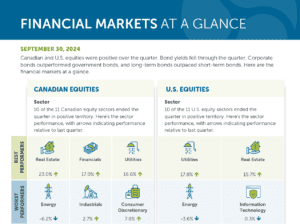Building Retirement Income Requires More Than Monte Carlo Wizardry

What You Need to Know
According to financial planning expert and author Robert Powell, many advisors tend to focus on math, rather than psychology.
In today’s market environment, retirees must think carefully about inflation and sequence risk.
Clients need yearly assessments of their retirement plans, Powell says.
Financial advisors who focus on helping clients prepare for retirement are well aware of the role of Monte Carlo simulations and breakeven calculations, but many continue to underestimate the psychological and emotional factors that can disrupt even the best-laid income plans.
Particularly during times of market turmoil, retirees can have trouble seeing the bigger picture and accurately assessing the way different risks can affect their ability to achieve a stable “retirement paycheck.” This is especially true with respect to the related risks of high persistent inflation and growing longevity.
That warning was shared by financial writer and certified financial planner Robert Powell on the latest episode of Morningstar’s The Long View podcast, hosted by Christine Benz and Jeff Ptak. In addition to writing for the financial press, Powell is the director of retirement education at Sensible Money and is editor-in-chief of the Investments & Wealth Institute’s Retirement Management Journal.
In Powell’s extensive experience, successfully solving the retirement income puzzle demands all the various skills a good financial advisor should possess — mathematical prowess, emotional intelligence, clear communication skills and more. As Powell told Benz and Ptak, today’s powerful financial planning software can help advisors and their clients create a framework for discussing income and making investment and withdrawal decisions, but that’s only part of the job.
Also crucial to good long-term outcomes is the proactive management of expectations and the commitment to the plan, Powell says. Without these psychological elements, even the best mathematical modeling will fail to help retirees achieve and maintain the lifestyle they envision.
Confronting Fear Is a Central Part of Retirement Planning
Powell says financial advisors often tend to underestimate the degree of fear that their clients have when they are on the cusp of retirement. Even clients with substantial assets, which from a mathematical perspective should easily cover their retirement needs, still face significant degrees of discomfort and uncertainty as they contemplate life after work.
“People just have to get used to moving away from the saving stage of their life to the spending down phase,” Powell says. “It’s a psychological hurdle that one has to go over, because having a paycheck from working is nice, as is seeing your net worth grow.”
Powell encourages advisors to start this conversation as early as possible with their clients — to get them thinking well in advance about the fact that retirement assets are meant to be spent. Yes, legacy goals are important, but so is enjoying the fruits of one’s lifelong labor.
“It strikes me that today’s advisors maybe rely too much on Monte Carlo, and they think it’s enough to just tell a client that they have a 70%, 80% or 90% chance that their portfolio will survive to the end of their life,” Powell says. “When a lot of clients get such information, what they actually think is that they would rather have a 100% chance.”
In this sense, Powell agrees with fellow industry analysts who argue Monte Carlo simulations should be constantly revisited and put in a more informative context by financial advisors.
“What most people need to feel comfortable in retirement is a year-over-year reassessment,” Powell says. “They need to be revisiting the question of whether they are still in good shape, or if they need to make adjustments in some form or fashion to their lifestyle. Oftentimes, they might even learn they can spend more, because things are turning out better than they thought.”
On Building the Income Plan Amid High Inflation
When it comes to the actual income planning process, Powell says he is a fan of bond ladders and other forms of income laddering — and of bucket strategies and asset-liability matching. However, the current inflationary environment means advisors have to update their playbook.
“For many who are worried about inflation, it might be a case of where you shorten the first bucket, the safety bucket,” Powell suggests. “Instead of maybe it being three or five years of income, maybe it’s more like one to three years, so that you’re putting less of your money in instruments that would suffer the most from higher inflation.”




